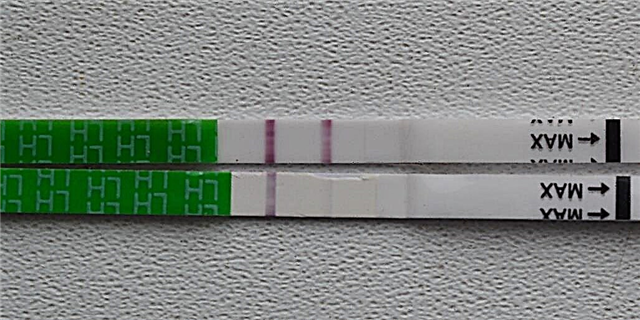
According to statistics, up to 25% of couples experience difficulties in conceiving, while the proportion of male infertility is no less than female. Scientists note that now there is a very alarming tendency of an increase in the number of infertile couples, and very often the cause of infertility cannot be established. The share of psychogenic infertility is about 15% of all cases, and this deserves special attention.

About pathology
Infertility in medicine is a condition in which people of reproductive age are unable to reproduce offspring. A couple is considered infertile if they cannot conceive a child for a year in the absence of contraception and having an active sex life.
Infertility can be due to female, male, or reciprocal factors. In women, congenital and acquired reproductive disorders are distinguished. The acquired factors can be expressed by gynecological diseases, hormonal disorders.
A significant proportion of all cases are infertility of the so-called unexplained genesis (or psychosomatic infertility). In men, the inability to fertilize a woman can also be both congenital and acquired, associated with a decrease in the quality of spermatozoa, a decrease in their number, and a violation of the morphological characteristics of germ cells. And the psychogenic factor plays an important role here.

Reproductive specialists are often faced with situations when the examination carried out on a man and a woman does not show significant deviations from the norms, but pregnancy does not occur.
If the so-called immunological infertility is not detected, in which the couple is genetically incompatible, then it is recommended to consult a psychotherapist in order to find out what attitudes that prevent the procreation of the family spouses may have.
The consultation of this specialist will not hurt all couples who are undergoing treatment for infertility, regardless of the reasons, since very often men and women create fertility problems for themselves. It is them that psychosomatic medicine studies.

Psychosomatic causes
For a new life to be conceived, mature and healthy sex cells of a man and a woman are needed. The main word is “mature”. I.e, for conception, it is necessary that both partners are sufficiently mature psychologically and mentally in order to give rise to a new life.
And this readiness is not expressed in the statements of the spouses that it is time for them to become parents. This is an internal, emotional and subconscious readiness for procreation.... Very often it is not her. Thus, from the point of view of psychosomatics, infertility is the subconscious unwillingness of one of the partners or both at once to become parents.

Let's consider a fairly standard situation: a couple has been married for several years, and relatives and friends are increasingly beginning to persistently and unceremoniously ask questions: "Isn't it time already?"
Under pressure from the outside, many couples really decide to conceive, but, being unprepared for this themselves, they may face unsuccessful attempts to conceive a baby... One of the partners may well be ready, but the second one may doubt his abilities, be too responsible and think that it is very, very difficult to raise a child, and also fear the birth of a sick child, especially if such cases are available as illustrative examples: relatives , friends had sick children.

It is no secret that some adults do not need parenting experience, but they carefully hide it so as not to seem "abnormal", since the social foundations are uncompromising: a normal woman should give birth, and a normal man should support his children and raise them with decent people.
A couple without children is often looked upon with regret, considering them sick. And if this couple declares that they consciously do not want children, then a flurry of public condemnation will immediately fall on her. In order not to stand out from the crowd, many people decide to conceive and give birth to a child, but they do not feel the inner readiness and desire for that, and therefore they subconsciously fear the onset of pregnancy, and conception does not occur as a result.
But female and male infertility have their own, distinct from each other, causes.
Among women
Reproductive dysfunction in women often appears against the background of a long, almost chronic fear of change. A woman is not ready to change her lifestyle, does not want to lose good physical shape, figure, does not want to take responsibility for another person... All these are signs of infantile girls stuck in childhood who are clearly not ready for motherhood.
Such women are young at 30 and 40 years old, wear pink things in ruffles and a small dog under their arm, they are very touchy and dependent.
Often infertility is faced by the fair sex, who experience a strong fear of childbirth, of pain, before the birth of sick children... Such fear can be rooted in childhood, when the girl was deeply impressed by a book or film in which the main character died in childbirth or gave birth to a disabled child.
These fears are diligently supported by society, and especially impressionable natures may well carry just such attitudes in the subconscious.
Psychoanalysts who have worked with infertile women argue that often women replace their desires with the desires of others... Speaking about the fact that they want to have a child, women often keep silent that this is not what they really want, but their husbands or relatives.
Often psychoanalysis reveals lack of genuine love for a partner as a cause of infertility.
And also difficulties with conception arise in women who have raised the idea of giving birth to the category of fix ideas.
Sometimes a woman's desire to give birth is sincere, but her intentions are not entirely decent: this happens in families where the marriage is already on the verge of collapse, and the woman believes that the birth of a child must necessarily seal the relationship that is falling apart.


- Women who categorically deny their own femininity are often infertile.: those who choose male professions, behave like men, compete with men in different spheres of life, and put their career first.
- And difficulties may arise in women who have early sexual intercourse and are accustomed to experiencing fear of an untimely, early pregnancy, they subconsciously have an attitude “just not to get pregnant,” and it is imperative to get rid of it.
- Infertility threatens girls who have had very difficult relationships with their own mothers, in connection with which the image of the mother as a whole in my head was not the most biased.
Psychotherapist Valery Sinelnikov claims that in the subconsciousness of every infertile woman there is something that destroys the soul of the unborn baby, that aggressively erases such a concept as childhood, while the woman consciously does not realize this.
An experienced qualified psychotherapist-hypnologist will help to identify the problem.


In men
As with female infertility, in men problems with conception appear when, in principle, they are not ready to take responsibility and experience deep emotional attachment... At the same time, a man may well agree with a woman that it is time to have an heir, and will even take vitamins and try to get on the right days of the menstrual cycle, but conception will not occur.
The stress experienced internally by a man who is not ready for fatherhood, fear of responsibility, rejection of his own masculinity, can lead not only to disruption of hormonal levels and a decrease in the quality of sperm, but also to impotence.
The fertility of the stronger sex depends very much on how harmonious their relations with women are, how confident the man is in the financial solvency of the family, how great is the authority of his father in his eyes.

Treatment
It is important to cure not only the disease that may accompany, but also the psycho-emotional background of the spouses.
A psychologist, a psychotherapist will help with this. The couple will need to honestly admit what they are afraid of and what attitudes they have regarding pregnancy, childbirth and children. In most cases, family therapy works.

You can find out about the psychosomatic causes of infertility from the mouth of a psychologist in the video below.



